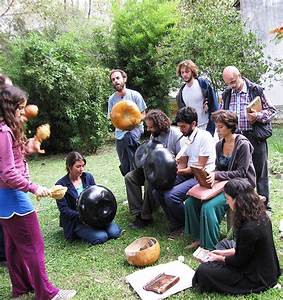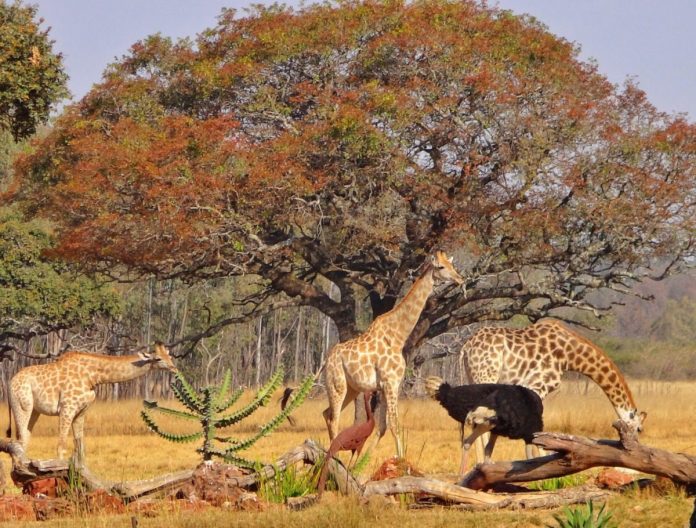by Farai Mabeza
On an unseasonably cold moonlit September night, a mini wilderness in the middle of the city known as Mukuvisi Woodlands reverberates to the hauntingly soulful beat of Zimbabwe’s premier music product, the Mbira.

Mukuvisi Woodlands is known for environmental conservation, but on this day music and culture have taken over.
The relatively small crowd, though is disappointing, is lively. Foreign artists command larger audiences when they tour Zimbabwe, but on this night one of the best sides of being Zimbabwean is the highlight.
It is a night of pride. A night that builds confidence in being Zimbabwean. In the music the audience feels its identity. It is more than just music.
The Mbira as the instrument is known is an embodiment of Zimbabwean culture and music. Throughout its history Mbira music has been used to tell stories, to worship and to entertain. It is part of the nation’s identity.
All of Zimbabwe’s people including, Shona, Ndebele, Ndau and Tonga possess rich cultural and artistic expressions. These need to be harvested and morphed into one national culture and identity.
That culture and identity then provides a Launchpad for development.
“First we have to know who we are, what we were in past histories (not Euro-pseudo histories), what we are now (and why) then we can plan the route to what we should become in the future,” says journalist and broadcaster, Billet Magara.
Chinese President Xi Jinping described culture as the soul of both a country and a nation in his book The Governance of China.
“History and reality have proven that a nation which abandons or betrays its own history and culture cannot prosper, and is likely to end in tragedy,” he said.
Even in Western cultures there is a deliberate effort to build a national ethos around their dominant cultural expressions.
In a video-recorded introductory lecture to a course titled “Listening to Music” for new students at America’s Yale University a Professor, Craig Wright, describes classical music as a treasure for Western culture.
His whole lecture seemed designed to drum up in the young students the value of classical music as a cultural treasure for the West.
“Although I don’t know much about your music I think I can teach you a great deal about your music by using the paradigms of classical music,” he says in the lecture.
How much can our own Mbira, our Imbube, our art or other cultural instruments be used to build a common identity which will lead to a common vision on nation building for Zimbabwe?
China, a country which has developed economically on the back of a strong cultural identity, offers an instructive model for Zimbabwe to learn from.
“We must never forget our history; only then can we open up a new era. We should know how to inherit before we become good at innovation.
“The people of a country or a nation must have common ideals and convictions if they are to advance with inspiration.
“To realise the dream of national rejuvenation we must be wealthy in both material and cultural terms.
“We should stick to this strategic concept; deal with the relationship between material progress and cultural and ethical progress in a dialectical, comprehensive and balanced way; pursue cultural and ethical progress in all aspects of social life in our reform,” President Xi said.
Magara says that no nation has ever developed on the back of a borrowed culture.
“China is a great lesson for Africa. Culture plays a much bigger role in China’s development than politics in that for nearly one hundred years China has been ruled by only one political party. Under it there have been numerous political and economic changes with minimal violence.
“Western mental colonisation has shifted many mindsets in Zimbabwe into adopting anti-Sino propaganda on behalf of Western masters they have never met. Shenzhen (in China) was a village in 1980 at the time of Zimbabwe’s own independence. Today it has grown to about three times the size of Johannesburg. The Chinese do not build their cities, roads, bridges from chanting “I receive!” They DO IT! Their culture provides them the foundation and Launchpad,” he said.
Political researcher, Bekezela Gumbo, says that Zimbabwe should take advantage of all its people to create a common culture to unite people from diverse backgrounds.
“Culture is very important in development because it unites people across differences behind one purpose. So culture is very important in developing one national purpose. But now the problem that we have in Zimbabwe is that our culture has been demarcated into various mini cultures.
“We have the Ndebele culture, we have the Shona culture, we have the San culture. Those cultures now make it very difficult to unite behind one purpose and one goal. It affects everything because culture creates identity. So we must have a national culture which unites us,” he said.













